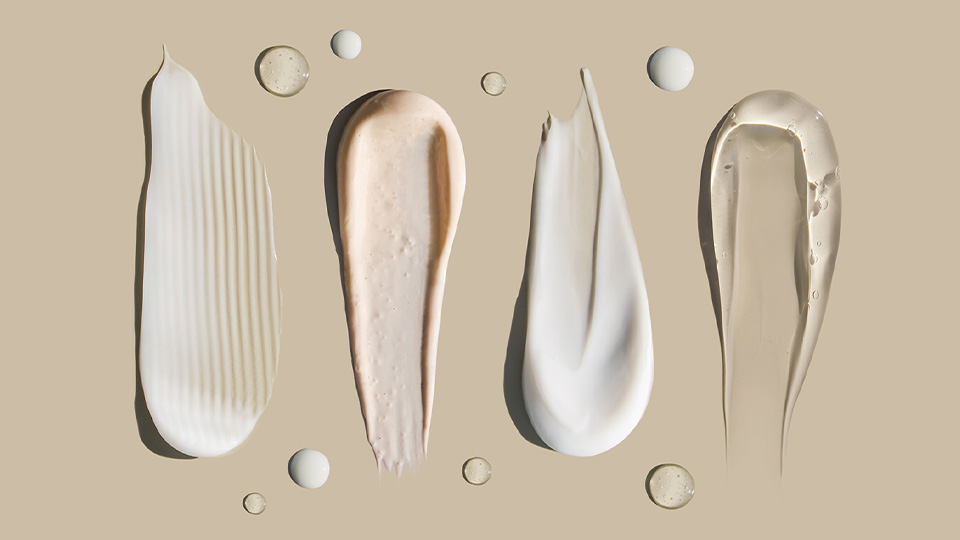
Whether you’re a seasoned eczema warrior or new to the club, it’s crucial to invest in a core set of products that won’t aggravate or lead to a flare. We’ve consulted professionals to provide you with a list of essential products and ingredients that dermatologists recommend for managing eczema symptoms effectively.
What are some important products and ingredients to prioritize?
Here are six types of products or ingredients that dermatologists recommend for people with eczema:
- Petroleum-based moisturizers
- Pramoxine (an ingredient to treat itchiness)
- Colloidal oatmeal (an ingredient to treat itchiness)
- Fragrance-free laundry essentials
- Physical sunblock
- 100% cotton clothing
Why are these types of products important for eczema management and how do they help?
1. Moisturizers
When it comes to managing eczema, keeping the skin hydrated and moisturized with a hypoallergenic, petroleum-based moisturizer is essential. These thick, clear, petrolatum ointments have low water and alcohol content, making them ideal for maintaining moisture in the skin without causing any burning sensation.
2. Pramoxine
During flares, the skin can become itchy and irritated. For relief, dermatologists recommend products containing the ingredient pramoxine. Pramoxine works by blocking nerve endings in the skin, effectively alleviating the itch and pain associated with eczema.
3. Colloidal oatmeal
Colloidal oatmeal is another effective ingredient for treating itchiness. Dermatologists recommend soaking in a bath with colloidal oatmeal or using creams formulated with it. Colloidal oatmeal forms a protective barrier on the skin, helping retain moisture, calming inflammation, and relieving itchiness.
4. Fragrance-free laundry essentials
Finding the right laundry products is crucial for people with eczema. Fragrances in detergents and softeners can often trigger flares and cause skin irritation and rash. Opting for fragrance-free laundry essentials can help minimize the risk of skin irritation and inflammation.
5. Cotton clothing
Certain fabrics, such as those with wool, can irritate the skin. Dermatologists recommend wearing 100% organic cotton clothing, as it tends to be softer and less likely to contain potential dyes and chemicals that can cause allergic reactions.
6. Sunblock
Sunscreen is a must-have product for any eczema-centric routine. However, it’s important to choose the right one. Dermatologists advise against chemical sunscreens that can cause allergic contact dermatitis and sting or irritate the skin. Instead, opt for physical sunblocks with active ingredients like zinc oxide and/or titanium dioxide. These create a barrier to block UV rays and are fragrance-free.
How can someone with eczema easily look for these products?
- Read the labels carefully when looking for fragrance-free products or products with beneficial ingredients.
- Ask your dermatologist for product recommendations tailored to your needs.
- Check out NEA’s Seal of Acceptance Product Directory, which can make searching for products easier.
FAQs
Q: Can I use regular moisturizers for eczema?
A: It’s recommended to use hypoallergenic, petroleum-based moisturizers specifically formulated for eczema to effectively manage and hydrate the skin.
Q: Are fragrance-free laundry essentials necessary for everyone with eczema?
A: Fragrance-free laundry essentials are highly recommended for people with eczema as fragrances in detergents and softeners can often cause skin irritation and rash.
Q: Can I wear synthetic fabrics if they are labeled “hypoallergenic”?
A: While some synthetic fabrics may be labeled as hypoallergenic, dermatologists generally recommend opting for 100% organic cotton clothing, as it is softer and less likely to contain potential irritants.
Conclusion
Investing in the right products is crucial for effectively managing eczema symptoms. By prioritizing moisturizers, itch-relieving ingredients like pramoxine and colloidal oatmeal, fragrance-free laundry essentials, sunblocks with physical barriers, and 100% cotton clothing, individuals with eczema can find relief and maintain healthier skin. Remember to read labels, consult your dermatologist, and seek out trusted resources like NEA’s Seal of Acceptance Product Directory for assistance in your search for suitable products.
Read more informative articles at News Explorer Today.